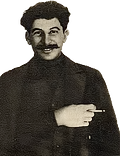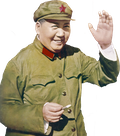this post was submitted on 12 Nov 2024
31 points (100.0% liked)
askchapo
22764 readers
10 users here now
Ask Hexbear is the place to ask and answer ~~thought-provoking~~ questions.
Rules:
-
Posts must ask a question.
-
If the question asked is serious, answer seriously.
-
Questions where you want to learn more about socialism are allowed, but questions in bad faith are not.
-
Try !feedback@hexbear.net if you're having questions about regarding moderation, site policy, the site itself, development, volunteering or the mod team.
founded 4 years ago
MODERATORS
you are viewing a single comment's thread
view the rest of the comments
view the rest of the comments



I think the lib pantheon is a little more crowded because their leaders are more often notable for either intellectual or political work rather than both, the way Lenin onward are. Early liberal revolutionaries didn't tend to write theory as significant or famous as that of their Enlightenment philosopher contemporaries, especially in Europe. Who in the modern day is reading Robespierre or Cromwell the way they would Smith or Ricardo? The United States had more crossover in fields though
Intellectually the 5 are probably John Locke, Adam Smith, Montesquieu, Rousseau, snd Voltaire. Maybe swap in James Madison, David Ricardo, or de Tocqueville for one of them.
For political leaders and revolutionaries, Oliver Cromwell, George Washington, Maximilien Robespierre, Simon Bolivar, Giuseppe Garibaldi.
That's an interesting observation. I wonder why theory and practice tend to go together for Marxist revolutionaries but not for liberal ones.
My idealistic guess would be the philosophical split between rationalism and empiricism, which is a lot less pronounced in Marxism. See: Where Do Correct Ideas Come From?
I don't know what material factors would influence this division